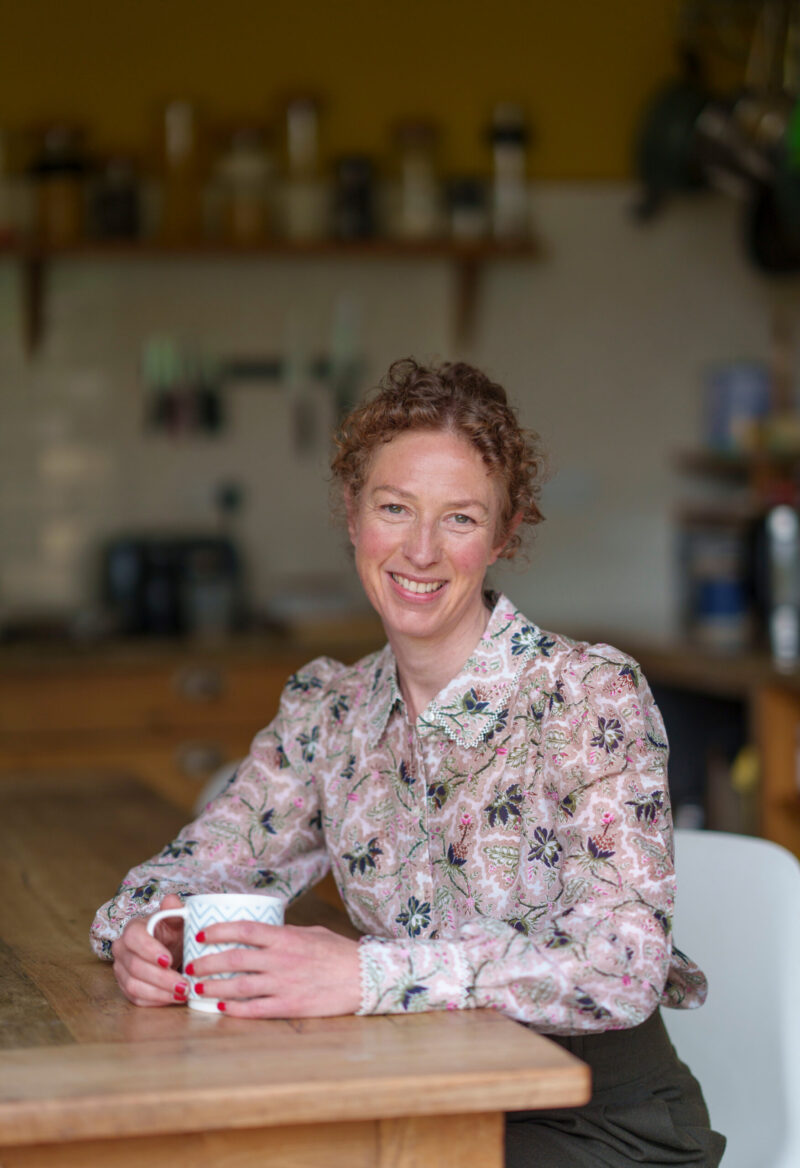This month, your IFW Showcase is Emma Boardwell, a highly regarded UKCP-trained psychotherapist, DipFA qualified financial advisor and Wise Monkey Certified Financial Coach. She is the founder of Emotional Finance, which offers consultancy, training and mentoring to financial professionals and financial coaching to private clients. Emma helps Financial Professionals build deeper, longer lasting and more trusted client connections to improve engagement, retention and referral. She also works directly with individuals, couples and families, helping them to find financial clarity and empowerment. We were intrigued to discover the parallels she draws between finance and psychotherapy, and how she turns these fascinations into a professional super-power.
How would you summarise your passions?
Outside of work my true loves are spending time with my family (my husband and our three boys who have all grown up and left home now), going to the cinema (best done alone!) and singing with an amazing choir – I’m a member of Neighbourhood Voices’ in Sheffield. Oh and cricket. I need to stop there, I could add loads of PS and PPS’s. Basically I love variety.
Workwise, I’m in that early founder stage of obsession! I absolutely love the strategic thinking and planning involved in entrepreneurship. I feel like I’ve shifted into fourth gear recently and I’m loving it.
What do you love to do when you’re not working?
I love cooking and I love eating. Most of my days are spent thinking about my next meal and often beyond. Food brings me so much pleasure. In another life I think I could have been a super taster and I think I might have a touch of synaesthesia. Flavours feel a bit like music to me. But I also love the act of cooking for others and the connection of a shared meal.
What’s your happiest memory?
My brain basically freezes when I’m asked to choose one thing. Like what’s your favourite song. Or what’s your favourite film. Or what’s your happiest memory.
I’m more about the small moments of joy. Catching the sunrise above the trees on a morning run. Sitting on my back step drinking a good cup of coffee in peace before the rest of the house wakes up. I’m also reminded of the deep joy I used to get watching my children whilst they slept…
What do you wish you’d been told about finance when you were 15?
The question is moot as I’m afraid, as there was no way I’d have listened.
What made you want to work as a financial adviser?
A book!
I had been working for many years as a psychotherapist when I picked up a book I’d actually bought for my son. He never read it because who reads a book your mum buys for you!?!? It was called Manage your Money Like a F*cking Grown Up by Sam Beckbessinger. I was so impacted by the newly found sense of clarity and empowerment the book offered me, I wanted to know more. More and more ended up with me becoming a DipFA.
How did you come to launch your business Emotional Finance?
I launched Emotional Finance as a protest against the backgrounding of building trusted, deeper and more allied relationships with clients in Financial Services. I feel like the lack of ‘soft skills’ training and support does a disservice to clients and financial professionals alike. And I wanted to do something about that.
How does your background as an accredited psychotherapist contribute to this?
I spent 12 years working as a psychotherapist, building trusted, deep and allied relationships with clients. I supported them to develop their awareness around the things that mattered to them, and what they wanted from their relationships and their lives. I helped them find solutions to their problems and become aware of habits and mindsets no longer serving them.
Not so different from financial professionals helping clients with their financial circumstances and financial wellbeing, right?
Financial professionals and psychotherapists both work on the ‘front line’ of emotions and transitions. Clients come to see us in the wake of divorce, marriage, retirement, bereavement etc. But also when they are struggling to figure out the day to day. The content of our client meetings is different for sure, but the process of ‘being of service’ feels similar to me.
Having had experience in facilitating personal and professional development groups, and having contributed to leading psychotherapy text books and training programmes, I knew I could help build bridges and translate the insights, skills and practices of psychotherapy for an audience of financial professionals.
What prompted you to join the Institute for Financial Wellbeing?
Once I heard about the IFW, it felt like a no brainer. I wanted to align with the values of promoting financial wellbeing.
What’s your top tip for someone wanting to improve their financial wellbeing?
To do the work of self-reflection first. Understand yourself. Then you can make decisions and act from the inside out rather than on what others tell you you should be thinking or doing.
Who or what is your favourite wellbeing guru, podcast or book?
For my 40th birthday I was bought Cheryl Strayed’s book Tiny Beautiful Things by a friend. It’s a collection of essays compiled from her ‘Dear Sugar’ advice column which she wrote anonymously. Her capacity to write clearly with beauty and compassion and strength is awesome. And each essay is so truthful and relatable. There’s a gem of wisdom in each.
What are you doing to advance your own financial wellbeing?
The biggest shift for my financial wellbeing has been letting go of all the ‘should’s’ and ‘should not’s’ about money which I inherited from my parents. The work is always ongoing.
Is there an IFW member you would like to see featured in the IFW Showcase? Send an email to members@ifw.org.uk and let us know.

